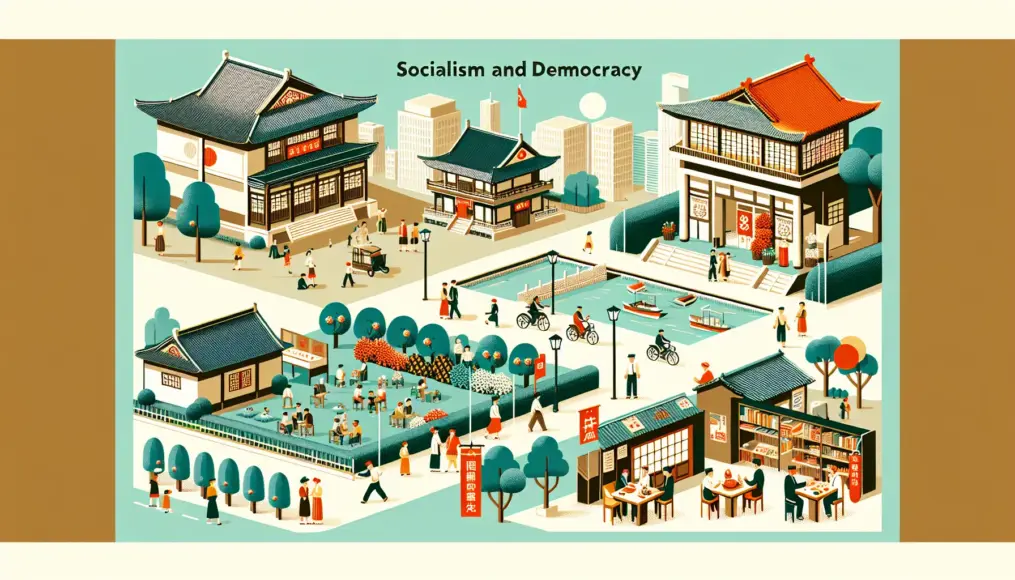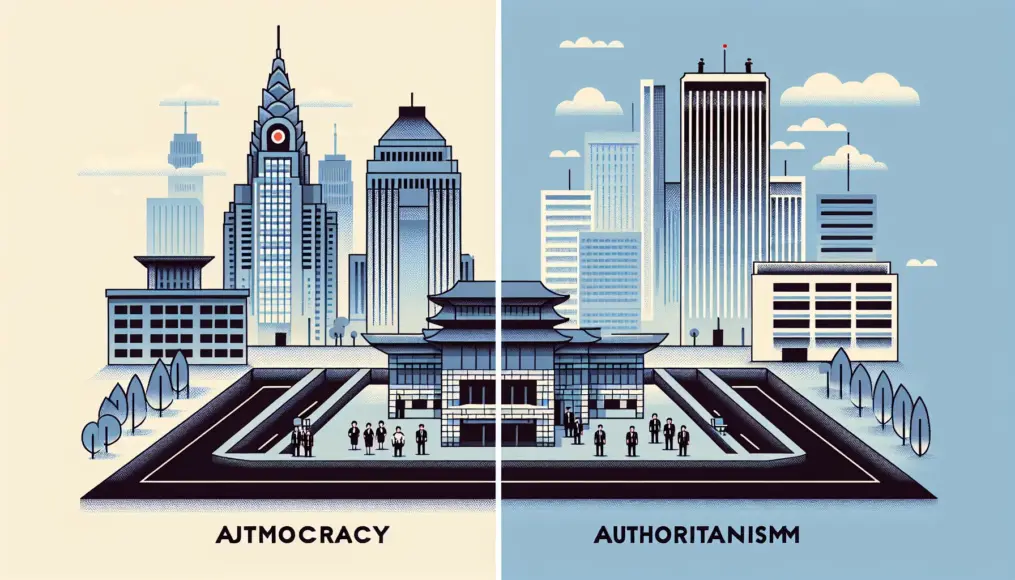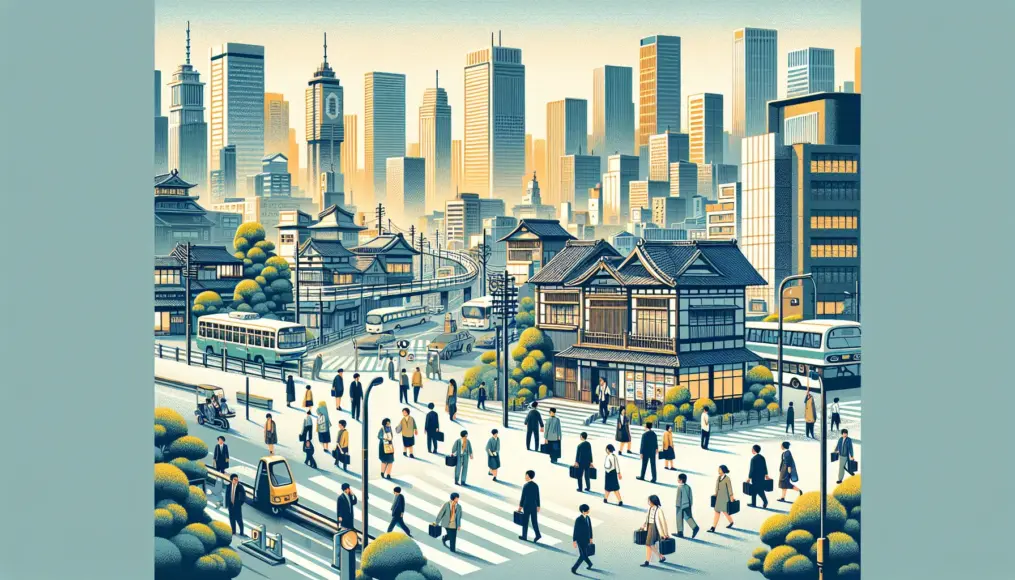Socialism and democracy have played significant roles in shaping people’s lives and cultures throughout history. By examining the cultural shifts brought about by these systems, we can gain a deeper understanding of our society. In this article, we will explore how socialism and democracy have evolved and influenced culture and society over time.
We’ll start by looking at the historical context, then delve into the changes in art, education, and social structures. Additionally, we will touch on the cultural impacts in modern society and how these concepts add vibrancy to our daily lives.
So, why not take this opportunity to reflect on the diverse cultures that emerge at the intersection of socialism and democracy?
- Examine the historical background of socialism and democracy
- Explore their influence on culture and education
- Consider the cultural changes in contemporary society
Historical Background of Socialism and Democracy
Socialism and democracy have a rich history as political and economic systems, deeply influencing people’s lives and the structure of society. These ideas have emerged in various forms throughout different eras and regions, evolving together and intertwining in complex ways. In this chapter, we’ll delve into the origins and development of socialism, as well as the evolution of democracy and its impacts.
By understanding this historical background, we can gain deeper insights into contemporary political debates and cultural shifts in modern society. So, let’s start by exploring the origins and development of socialism.
Origins and Development of Socialism
Socialism gained significant momentum in the 19th century, driven largely by the economic shifts brought about by the Industrial Revolution. As workers faced harsh conditions, issues of social inequality and poverty came to the forefront, prompting the emergence of socialist thought as a countermeasure.
Socialism seeks not only economic equality but also aims to create a better society. Various factions have emerged within socialism, including communism and democratic socialism, each offering different approaches to these goals. This diversity has profoundly influenced societal structures and values, leading many countries to adopt socialist policies.
- Socialism developed in the 19th century, rooted in the Industrial Revolution
- It was formed as an ideology aimed at improving workers’ rights
- Different factions exist, providing diverse influences on society
Evolution of Democracy and Its Influence
Democracy traces its roots back to ancient Greece, evolving through various forms throughout history. Modern democracy has been significantly shaped by Enlightenment thought and the French Revolution in the 18th century, emphasizing individual rights and freedoms.
The evolution of democracy goes beyond mere changes in political systems; it has had a profound impact on society as a whole. The importance of citizen participation has increased, leading to the establishment of systems that reflect the will of the people through elections and political engagement. As a result, citizens have gained the power to express their opinions and work towards improving society.
- Democracy has its origins in ancient Greece
- Modern democracy evolved through Enlightenment thought and revolutions
- Emphasis on citizen participation has led to systems that reflect societal will
The Impact on Culture: A Closer Look
Socialism and democracy have profoundly influenced various aspects of culture. The values and ideals brought forth by these systems have led to expressions and advancements in fields such as art, literature, education, and science. In this chapter, we’ll focus on the impact of these systems on artistic and literary endeavors, exploring how they’ve stimulated cultural activities. We’ll also touch on the advancements in education and science, examining their contributions to societal progress.
Culture is a reflection of society, constantly evolving under the influence of socialism and democracy. Let’s begin by examining their effects on art and literature.
Influence on Art and Literature
Both socialism and democracy can promote specific themes and styles in artistic and literary expressions. Socialism often gives rise to works that address the lives of workers and social inequalities, resulting in art filled with political messages. This has led to a wealth of creations that reflect social issues, deeply resonating with audiences.
On the other hand, democracy emphasizes the importance of free expression and nurtures a culture that embraces diverse perspectives. As a result, a variety of literary genres and artistic forms have emerged, creating a fertile ground for writers and artists to freely share their opinions and emotions. This has increased the representation of societal diversity in creative works, enriching the cultural landscape.
- Socialism has promoted art that addresses social issues
- Democracy emphasizes free expression and embraces diverse viewpoints
- Cultural richness has expanded, leading to a variety of creative works
Advancements in Education and Science
Socialism and democracy have also significantly impacted education systems and scientific development. Socialism aims to provide equal learning opportunities for all by promoting widespread education. Consequently, many countries have established education systems that facilitate the dissemination of knowledge, contributing to societal advancement.
Democracy fosters an environment where free thought and opinion are respected, thereby accelerating scientific progress. Researchers and scholars are able to conduct their work freely and share their findings with society, leading to advancements in science and technology. In this way, the progression of education and science has contributed to the overall enhancement of knowledge and skills within society.
- Socialism aimed for the widespread availability of education and equal opportunities
- Democracy respects free thought and promotes scientific advancement
- Progress in education and science has contributed to the overall improvement of societal knowledge and technology
Changes in Social Structure and Their Consequences
Socialism and democracy have significantly transformed social structures. With the emergence of these systems, concepts of social class and equality have been reexamined, and citizen participation has become increasingly important. In this section, we will explore the changes in social class and equality, as well as the significance of civic engagement and social movements. This analysis will help us understand how our society is shaped.
The transformation of social structures impacts not only the economy but also the lives and values of individuals. Let’s take a closer look at the changes in social class and equality.
Changes in Social Class and Equality
Socialism aimed to eliminate class distinctions and create an equal society. It particularly emphasized the rights of the working class and promoted policies to improve their living conditions. The expectation was that this would reduce economic disparities and contribute to the overall stability of society.
Similarly, democracy values equality and encourages the participation of all citizens in politics. Under such systems, the voices of citizens from diverse social classes are more likely to be heard, contributing to a fairer society. As a result, the diversity within society is respected, laying the foundation for people from various backgrounds to live together harmoniously.
- Socialism aimed to eliminate class distinctions.
- Policies were promoted to enhance the rights of the working class.
- Democracy reflects citizens’ voices, contributing to a fair society.
Civic Participation and Social Movements
Citizen participation is a crucial element at the heart of both socialism and democracy. In a democracy, citizens can directly influence society through elections and political activities. This participation serves as an essential means to reflect the public’s opinions in politics and plays a significant role in promoting social change.
Moreover, social movements are a form of civic engagement that plays a vital role in addressing social issues. Movements such as labor rights, environmental advocacy, and peace initiatives gather citizens together, enabling them to collaborate towards common goals and effect change in society. This empowers citizens to raise their voices and demand improvements in their communities.
- Civic participation is a key factor in influencing society.
- In a democracy, citizens can engage directly in politics.
- Social movements serve as a means for citizens to cooperate towards common goals.
Cultural Influences in Modern Society
In today’s society, the impacts of socialism and democracy are manifested in various ways within culture. As globalization accelerates, different cultures are interacting, leading to the emergence of new values and expressions. In this chapter, we will explore how globalization and cultural fusion, as well as contemporary art and media, influence society. This exploration will deepen our understanding of how our culture is shaped.
Modern culture, while influenced by the historical backgrounds of socialism and democracy, is characterized by its rich diversity. Let’s first delve into the relationship between globalization and cultural fusion.
Globalization and Cultural Fusion
Globalization has facilitated the flow of economies and information across borders, increasing opportunities for different cultures to influence each other. This has led to a blending of various cultural elements from around the world, giving rise to new styles and trends. For instance, in music, fashion, and culinary arts, the intersection of diverse cultures has sparked the creation of fresh values.
Moreover, as the ideals of socialism and democracy spread internationally, there has been a notable rise in cultural expressions rooted in these systems. The proliferation of international cultural events and exchanges provides opportunities for people from different backgrounds to collaborate and engage in discussions, further enriching cultural diversity.
- Different cultures are blending due to globalization
- New trends are emerging in music, fashion, and more
- International cultural exchanges enrich cultural diversity
Contemporary Art and Media
Contemporary art is heavily influenced by socialism and democracy, often exploring political messages and social themes. Artists frequently take on a provocative approach to raise awareness about social issues. Consequently, art transcends mere visual experience, becoming a powerful medium to convey significant messages to its audience.
Media also plays a crucial role in culture. In our modern world, where sharing and disseminating information has become easier, diverse opinions and values circulate widely through the internet and social media. This allows more individuals to express their voices and impact society.
- Contemporary art frequently explores social issues
- Art serves as a medium to convey important messages to audiences
- Media spreads diverse opinions and influences society
Conclusion
Socialism and democracy have played historically significant roles, profoundly influencing our culture and social structures. These systems promote equality and civic engagement, bringing about changes in people’s lives in various ways. In our increasingly globalized world, the ideals of both socialism and democracy intersect, fostering cultural diversity.
Moreover, the advancements in workers’ rights brought about by socialism and the importance of civic expression championed by democracy are becoming ever more relevant in contemporary society. By understanding these historical contexts and cultural influences, we can broaden our thinking towards realizing a better society.
- Socialism and democracy deeply impact social structures and culture.
- Civic participation and equality serve as fertile ground for new values.
- Globalization is blending different cultures, creating a richer society.
With these perspectives in mind, why not take some time to reflect on the future of society? We would love to hear your thoughts and opinions in the comments!



Comment